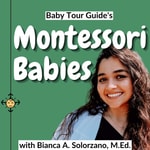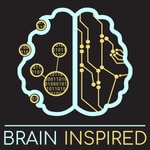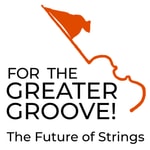The Neuroscience of Improvisation – Details, episodes & analysis
Podcast details
Technical and general information from the podcast's RSS feed.

The Neuroscience of Improvisation
Bradley Vines
Frequency: 1 episode/25d. Total Eps: 12

Recent rankings
Latest chart positions across Apple Podcasts and Spotify rankings.
Apple Podcasts
🇬🇧 Great Britain - socialSciences
03/08/2025#75🇬🇧 Great Britain - socialSciences
02/08/2025#56
Spotify
No recent rankings available
Shared links between episodes and podcasts
Links found in episode descriptions and other podcasts that share them.
See allRSS feed quality and score
Technical evaluation of the podcast's RSS feed quality and structure.
See allScore global : 68%
Publication history
Monthly episode publishing history over the past years.
Improvisation and Dreaming: Comparing These Intriguing States of Mind and Brain
Season 1 · Episode 12
mardi 27 février 2024 • Duration 15:12
In this program, we compare dreaming and improvisation focusing on creative synergies, experiential similarities, and the underlying neurophysiology. These states of mind are mutually illuminating. That is, learning about one provides insights into the other. A key insight here is that we can deepen our understanding of improvisation by exploring other states of mind that have overlapping experiential qualities or brain states. In his book Dreams of Awakening, Charlie Morley writes that “…there are many different ways to tell the difference between [different states of experience], but the easiest way to get to grips with these differences is to spend as much time as we can in these states.” I propose that this is the case for improvisation, as well. By paying more attention to our dreaming experiences, we may deepen our knowledge of the experience of improvisation.
References:
The Case of the Three-Sided Dream: https://tv.apple.com/us/movie/the-case-of-the-three-sided-dream/umc.cmc.2no74bniyii0qtz63oc0wrmih
Bashwiner, D. (2018). The neuroscience of musical creativity. The Cambridge Handbook of the neuroscience of creativity, 51, 495-516.
Link to Albert Ayler’s New Grass liner notes: https://lavelleporter.com/2010/08/22/message-from-albert-ayler/
I Called Him Morgan documentary: https://tv.apple.com/us/movie/i-called-him-morgan/umc.cmc.4cip1f47gqxk6qigg0mb1hiny
Arrows to Infinity documentary: https://tv.apple.com/us/movie/charles-lloyd-arrows-into-infinity/umc.cmc.3ldicyne96kj1hrewd9w3dmvj
Kansas City PBS documentary Bird: Not Out Of Nowhere | Charlie Parker's Kansas City Legacy: https://www.youtube.com/clip/Ugkx9Z02xiRacQxWEtx5eSmeucx-t6lB5kYZ
Zadra, A., & Stickgold, R. (2021). When brains dream: Understanding the science and mystery of our dreaming minds. WW Norton & Company.
Oliver Sach’s article about the jazz drummer with Tourette’s Syndrome: https://medhum.med.nyu.edu/view/12034
Hank Green of the SciShow Psych: https://www.youtube.com/watch?v=KwOhfmygHyM
Braun, A. R., Balkin, T. J., Wesenten, N. J., Carson, R. E., Varga, M., Baldwin, P., ... & Herscovitch, P. (1997). Regional cerebral blood flow throughout the sleep-wake cycle. An H2 (15) O PET study. Brain: a journal of neurology, 120(7), 1173-1197.
Kraehenmann, R. (2017). Dreams and psychedelics: neurophenomenological comparison and therapeutic implications. Current neuropharmacology, 15(7), 1032-1042.
Limb, C. J., & Braun, A. R. (2008). Neural substrates of spontaneous musical performance: An fMRI study of jazz improvisation. PLoS one, 3(2), e1679.
Liu, S., Chow, H. M., Xu, Y., Erkkinen, M. G., Swett, K. E., Eagle, M. W., ... & Braun, A. R. (2012). Neural correlates of lyrical improvisation: an fMRI study of freestyle rap. Scientific reports, 2(1), 834.
Rosen, D. S., Oh, Y., Erickson, B., Zhang, F. Z., Kim, Y. E., & Kounios, J. (2020). Dual-process contributions to creativity in jazz improvisations: An SPM-EEG study. NeuroImage, 213, 116632.
Walker, M. P., & van Der Helm, E. (2009). Overnight therapy? The role of sleep in emotional brain processing. Psychological bulletin, 135(5), 731.
Trehub, S. E., Ghazban, N., & Corbeil, M. (2015). Musical affect regulation in infancy. Annals of the New York Academy of Sciences, 1337(1), 186-192.
Shenfield, T., Trehub, S. E., & Nakata, T. (2003). Maternal singing modulates infant arousal. Psychology of music, 31(4), 365-375.
Terry, P. C., Karageorghis, C. I., Curran, M. L., Martin, O. V., & Parsons-Smith, R. L. (2020). Effects of music in exercise and sport: A meta-analytic review. Psychological bulletin, 146(2), 91.
Seppälä, E., Bradley, C., & Goldstein, M. R. (2020). Research: Why breathing is so effective at reducing stress. Harvard Business Review. Diakses dari https://hbr. org/2020/09/research-why-breathing-is-so-effective-at-reducing-stress. https://hbr.org/2020/09/research-why-breathing-is-so-effective-at-reducing-stress
What do improvisation, dreaming, and psychedelics have in common from a neuroscience perspective?
Season 1 · Episode 11
jeudi 22 février 2024 • Duration 12:36
What is the experience of improvisation and what are its neurobiological correlates? One way to flesh out an answer, or at least to get the lay of the land, so to speak, is to look at how improvisation compares with other kinds of brain states and states of experience that have been explored with science, such as dreaming and psychedelics. That's what we're embarking upon here. In this video, you are going to discover that there are some quite interesting relationships between what's happening in the brain during improvisation and what happens to the brain under the influence of dreaming and classical psychedelics.
References:
Rinpoche, Tenzin Wangyal. Tibetan Yogas of Dream and Sleep, The (p. 9). Shambhala. Kindle Edition.
Seth, A. (2021). Being you: A new science of consciousness. Penguin.
Ramachandran, V. S., & Rogers-Ramachandran, D. (2000). Phantom limbs and neural plasticity. Archives of neurology, 57(3), 317-320.
Braun, A. R., Balkin, T. J., Wesenten, N. J., Carson, R. E., Varga, M., Baldwin, P., ... & Herscovitch, P. (1997). Regional cerebral blood flow throughout the sleep-wake cycle. An H2 (15) O PET study. Brain: a journal of neurology, 120(7), 1173-1197.
Kraehenmann, R. (2017). Dreams and psychedelics: neurophenomenological comparison and therapeutic implications. Current neuropharmacology, 15(7), 1032-1042.
Petri, G., Expert, P., Turkheimer, F., Carhart-Harris, R., Nutt, D., Hellyer, P. J., & Vaccarino, F. (2014). Homological scaffolds of brain functional networks. Journal of The Royal Society Interface, 11(101), 20140873.
Carhart-Harris, R. L., Leech, R., Hellyer, P. J., Shanahan, M., Feilding, A., Tagliazucchi, E., ... & Nutt, D. (2014). The entropic brain: a theory of conscious states informed by neuroimaging research with psychedelic drugs. Frontiers in human neuroscience, 20.
Dolan, D., Jensen, H. J., Mediano, P. A., Molina-Solana, M., Rajpal, H., Rosas, F., & Sloboda, J. A. (2018). The improvisational state of mind: A multidisciplinary study of an improvisatory approach to classical music repertoire performance. Frontiers in psychology, 9, 1341.
Neuroscience of Improvisation video on changes in prefrontal cortex activation associated with improvisation: https://youtu.be/_lcaXsuDRIw
Tagliazucchi E., Carhart-Harris R., Leech R., Nutt D., Chialvo D.R. Enhanced repertoire of brain dynamical states during the psychedelic experience. Hum. Brain Mapp. 2014;35(11):5442–5456. [http://dx.doi.org/10.1002/hbm.22562]. [PMID: 24989126]. [PMC free article] [PubMed] [Google Scholar] [Ref list]
https://arxiv.org/pdf/1405.6466.pdf
Muthukumaraswamy, S. D., Carhart-Harris, R. L., Moran, R. J., Brookes, M. J., Williams, T. M., Errtizoe, D., ... & Nutt, D. J. (2013). Broadband cortical desynchronization underlies the human psychedelic state. Journal of Neuroscience, 33(38), 15171-15183.
The Nirvana of Improvisation: An Interview with Paul Nedzela - Baritone Saxophonist and Composer
Season 1 · Episode 2
lundi 12 juin 2023 • Duration 18:37
This is an interview with Paul Nedzela (https://www.paulnedzela.com/). He plays baritone saxophone with the Jazz at Lincoln Center Orchestra and leads his own quartet. He shares his thoughts on the experience of improvisation, how to prepare for a performance, the relationship between musical development and the various states of mind occasioned by improvisation, as well as several other topics.
The first musical segment is from the opening track of Introducing Paul Nedzela, entitled #251 (https://music.apple.com/us/album/251-feat-dan-nimmer-david-wong-aaron-kimmel/1688589768?i=1688589788).
The second musical segment is from another track on Introducing Paul Nedzela, entitled A Call Beyond (https://music.apple.com/us/album/a-call-beyond-feat-dan-nimmer-david-wong-aaron-kimmel/1688589768?i=1688590091).
Improvisation and Meditation: An interview with the saxophonist and composer Prasant Radhakrishnan
Season 1 · Episode 1
lundi 29 mai 2023 • Duration 58:46
Prasant Radhakrishnan has a background in Carnatic Indian classical music and Western musical traditions, including jazz improvisation. Prasant is a protégé of the legendary Kadri Gopalnath, who revolutionized the role of the saxophone in Carnatic music. Prasant's performances traverse the realms of traditional Carnatic concert programs while also blurring boundaries with his VidyA ensemble and other collaborations, featuring instrumentation from the jazz tradition. Moreover, he embraces music as meditation, bringing forth unique philosophical perspectives through his artistry and teaching.
The interview covers the following topics:
- Prasant's experiences with Carnatic and jazz music
- His approach to improvisation across these musical traditions
- Experiences with his guru, Sri Kadri Gopalnath, and related insights
- Methods for learning to improvise
- Integrating meditation and music practice (including a demonstration!)
- Blending Indian and Western music traditions through composition and performance
- Breathing techniques for self-awareness
- Dreaming and improvisation
- Comparing the relationship between the Carnatic and jazz traditions and mind-altering substances and addiction
To learn more about Prasant Radhakrishnan's music, teaching, and performance activities, see his website: https://prasantmusic.com/
How do neuroscience findings compare with the intuitions of great improvisers?
Season 1 · Episode 10
dimanche 31 décembre 2023 • Duration 13:19
This episode shares overviews of seminal neuroimaging studies that provide insights into what happens in the brain during improvisation. You will learn how these findings align with what improvisers say about their experiences, including remarks from Bill Evans, Sonny Rollins, Kenny Werner, Pat Metheny, and Gary Burton. Cross-cultural perspectives are included here, as well, including reference to a traditional Japanese visual art form and traditional perspectives from West Africa.
References for the episode:
Kind of Blue liner notes by Bill Evans: http://albumlinernotes.com/Kind_of_Blue.html
Saxophone Colossus documentary about Sonny Rollins: https://www.imdb.com/title/tt0196073/
Full interview with Kenny Werner: https://www.youtube.com/watch?v=qsPg5lu4WCg&t=2318s
Pat Metheny at the Society for Neuroscience conference in 2018: https://youtu.be/yhAbNv1gJT8?si=uMgB-MxmrciyKBAN
Gary Burton’s Improv Class: https://youtu.be/t2txO_u2eNg?si=CBd6uc52UqxBOYz6
Limb & Braun, 2008: https://journals.plos.org/plosone/article?id=10.1371/journal.pone.0001679
Liu et al., 2012: https://www.nature.com/articles/srep00834
Rosen et al., 2020: https://www.sciencedirect.com/science/article/pii/S1053811920301191
Rosen et al., 2016: https://www.frontiersin.org/articles/10.3389/fnhum.2016.00579/full
Malidoma Somé: The Ancestors' Gift of Healing: https://youtu.be/io28LgxYRf0?si=9ZX63gP4qtiI3s7t
Playbook for Acquiring the Language of Improvisation, with drummer and educator Sammy Miller
Season 1 · Episode 9
mardi 12 décembre 2023 • Duration 42:31
In this episode, we have the pleasure of chatting with the marvelous Sammy Miller, the founder of Playbook, which is a groundbreaking approach to teaching improvisation and musical skills. Playbook blends in-person learning with cutting-edge software to foster foundational skills that nourish life-long musical engagement. Sammy is an accomplished Juilliard-trained jazz drummer and a passionate educator. He is on a mission to make music accessible to everyone. In our conversation, we explore his journey, from what sparked his love of music to the creation of Playbook. According to Sammy, Playbook isn't just about learning to play an instrument; it's a dynamic method that empowers individuals to embrace the language of music and to communicate fluently through their art. From classrooms to online spaces, Sammy is paving the way for a new era of musical education that resonates with aspiring musicians and seasoned pros alike.
For more information about Sammy Miller and Playbook, visit the following websites: https://www.sammymillercongregation.com/playbook
https://www.thisisplaybook.com/
Improvisation and The Attainment of Excellence, with Carnatic Percussionist Dr. Suresh Vaidyanathan
Season 1 · Episode 8
mercredi 6 septembre 2023 • Duration 34:12
Our guest for this episode is Dr. Suresh Vaidyanathan, who is widely recognized as Ghatam Suresh. He is an extraordinary Carnatic Indian classical percussionist renowned for his mastery of the ancient Ghatam, a clay pot with distinctive resonant and percussive qualities. This instrument plays a pivotal role in Carnatic music as accompaniment and soloist. With a global presence as a leader and collaborator with world-class musicians, Dr. Vaidyanathan brings a unique perspective to the intersection of improvisation and musical expertise. Beyond his exceptional musical talents, Ghatam Suresh is a remarkable teacher known for his creativity and generosity as an exponent of rhythmic knowledge. He is also a scholar and recently completed his doctoral studies on the history of the Ghatam and its performance traditions! Dr. Vaidyanathan imparts invaluable insights into developing musical expertise through improvisation in this first installment of our enlightening conversation. He shares how his intellectual pursuits have enriched his musicianship and unveils his secrets to maintaining and nurturing the quality of mind required to excel in the world of music and the responsibility musicians hold to themselves and their audience. Join us as we delve into the fascinating world of Dr. Ghatam Suresh Vaidyanathan—a musician, scholar, and delightful person.
The musical interlude towards the beginning of the program features music composed and performed by Bradley Vines on alto and baritone saxophones. The first quote is by Louis Kahn taken from the documentary My Architect created by his son, Nathanial Kahn (https://www.amazon.com/My-Architect-Region-2/dp/B0006GVJLC/ref=sr_1_8?crid=2354GLU7P6J5Q&keywords=my+architect+nathaniel+kahn&qid=1693952870&sprefix=my+architect+nathaniel+kah%2Caps%2C439&sr=8-8). The second quote is by Joseph Goldstein from an interview for the Waking Up app (https://rss.samharris.org/feed/24802f09-a945-445c-8d45-81112d77276f).
There are four segments of Ghatam Suresh’s performances taken from four different YouTube videos:
- https://www.youtube.com/watch?v=Re5h3EetEjw
- https://www.youtube.com/watch?v=sCdLXwoMsF8
- https://www.youtube.com/watch?v=wuEmHBKUMCA
- https://www.youtube.com/watch?v=CkmCrGJlNe4
The audio for this episode was edited by Zeyn Mroueh.
The Neuroscience of Effortless Mastery, with pianist, composer, and author Kenny Werner
Season 1 · Episode 7
mercredi 2 août 2023 • Duration 01:25:41
This is an interview with the incomparable Kenny Werner. He is an improvising pianist and author whose impact on the philosophy and practice of improvisation has been extraordinary. In the realm of music, Kenny Werner's improvisations weave melodies and harmonies that are rooted in but not limited to the jazz tradition. His groundbreaking work as the architect of "Effortless Mastery," a transformative methodology for nurturing musical talent, has facilitated the growth of countless aspiring artists worldwide. What sets Kenny Werner apart is not only his technical fluency as a performing artist, but his understanding of the deeper connections between music, self-discovery, and indeed life itself. Immersed in the teachings of Indian philosophy and their echoes in Western thought, Kenny brings a unique perspective that extends well beyond just music practice. This discussion delves into the very heart of Effortless Mastery as Kenny opens the door to a world of possibilities through guided exercises, allowing you to experience the essence of his approach firsthand. Throughout the discussion, Kenny plays the piano to demonstrate, and you might even witness the creation of a new composition! Whether you're a seasoned musician, an aspiring artist, or simply someone with an ear for beauty, this interview with Kenny Werner promises to be an unforgettable exploration of the philosophy, music, and wisdom that shape his remarkable journey.
The musical interlude towards the beginning of the program features music composed and performed by Bradley Vines on alto and baritone saxophones. The first quote is by Sister Wendy taken from her program The Story of Painting (https://www.youtube.com/watch?v=QBv0HezlOBw). The second quote is from an interview with Swami Sarvapriyananda on the Waking Up app with Sam Harris (https://dynamic.wakingup.com/course/COFFD9B?code=SCE8C67C8&share_id=D9D1B484&source=content%20share).
There are three segments of Kenny Werner's recorded music included. The first is taken from the song Little Blue Man on the album Beat Degeneration (https://music.apple.com/us/album/little-blue-man/80818980?i=80818904, with Johannes Weidenmueller, Ari Hoenig, and Kenny Werner). The second is from the title track of his album Animal Crackers (https://music.apple.com/us/album/animal-crackers-feat-kenny-werner-johannes-weidenmueller/1305816021?i=1305816267). The third is from the title track of his album The Space (https://music.apple.com/us/album/the-space/1441314552?i=1441314553).
A Life of Improvisation, with Drummer Tommy Campbell
Season 1 · Episode 6
vendredi 21 juillet 2023 • Duration 52:08
In this episode, we present an interview with the magnificent Tommy Campbell. Tommy is a drummer who has performed with Dizzy Gillespie, Sonny Rollins, Jimmy Smith, the Mingus Big Band, and many other world-class musicians. He also leads the Vocal Eyes ensemble, which presents an innovative blend of percussion and vocal performance. In our conversation, Tommy shares his perspective on the necessity of improvisation in daily life and music. He tells us about his time with Dizzy Gillespie, how music has played a healing role in his life, and how he developed his world-famous "porkestra", which is this delightful polyrhythmic puppet show he performs with squeaky toys (if you ever have a chance to see him doing that, I can just about guarantee it’ll bring a smile to your heart).
The musical interlude was written and composed by Bradley Vines on alto and baritone saxophones. The first quote is by Andy Clark from his book The Experience Machine (https://www.audible.com/pd/The-Experience-Machine-Audiobook/B0B646HS6N?action_code=ASSGB149080119000H&share_location=pdp). The second quote is by Alan Watts from his lecture Coincidence of Opposites (https://www.youtube.com/watch?v=nLI54vXxfic&t=2s).
The Porkestra snippet is from one of many live performances available on YouTube (https://youtube.com/clip/UgkxuYLgwlqFVQzhn9izWjfHT1Wib_J1ejkA/).
The drum solo at the end is by Tommy Campbell from the opening track for his My Heart album (https://music.apple.com/us/album/the-night-has-a-thousand-eyes/346151132?i=346151143/).
The Poetry of Improvisation, with author Mira T. Sundara Rajan
Season 1 · Episode 5
jeudi 13 juillet 2023 • Duration 28:52
This is the second part of our conversation with author, pianist, and law professor Mira T. Sundara Rajan. In this segment, she describes her experience of poetry and how it relates to her experience of playing composed music. Mira also reads poetry by Percy Blythe Shelley and provides a translation of poetry by her great-grandfather Mahakavi C. Subramania Bharati. She tells a fascinating story about Bharati improvising poetry.
The musical interlude towards the beginning features music composed and performed by Bradley Vines on baritone and alto saxophones. It also includes quotes from Anil Seth and Swami Sarvapriyananda. The quote from Anil Seth was taken from a masterclass he gave for the Guardian (https://www.theguardian.com/guardian-masterclasses/2022/mar/23/understanding-consciousness-a-masterclass-with-neuroscientist-anil-seth). The quote from Swami Sarvapriyananda was taken from an interview he gave on the Waking Up app with Sam Harris (https://dynamic.wakingup.com/course/COFFD9B?code=SCE8C67C8&share_id=0B98BDDA&source=content%20share).
There is a segment of music at the end from a rendition of Bharati’s poem Nandala by O.S. Arun (https://www.youtube.com/watch?v=0MWlmEMqO98).
Mira’s concert in the Noontime Concerts series will be announced here: https://noontimeconcerts.org/
For information about Mira’s activities and forthcoming books, see her website: www.professormira.com/







